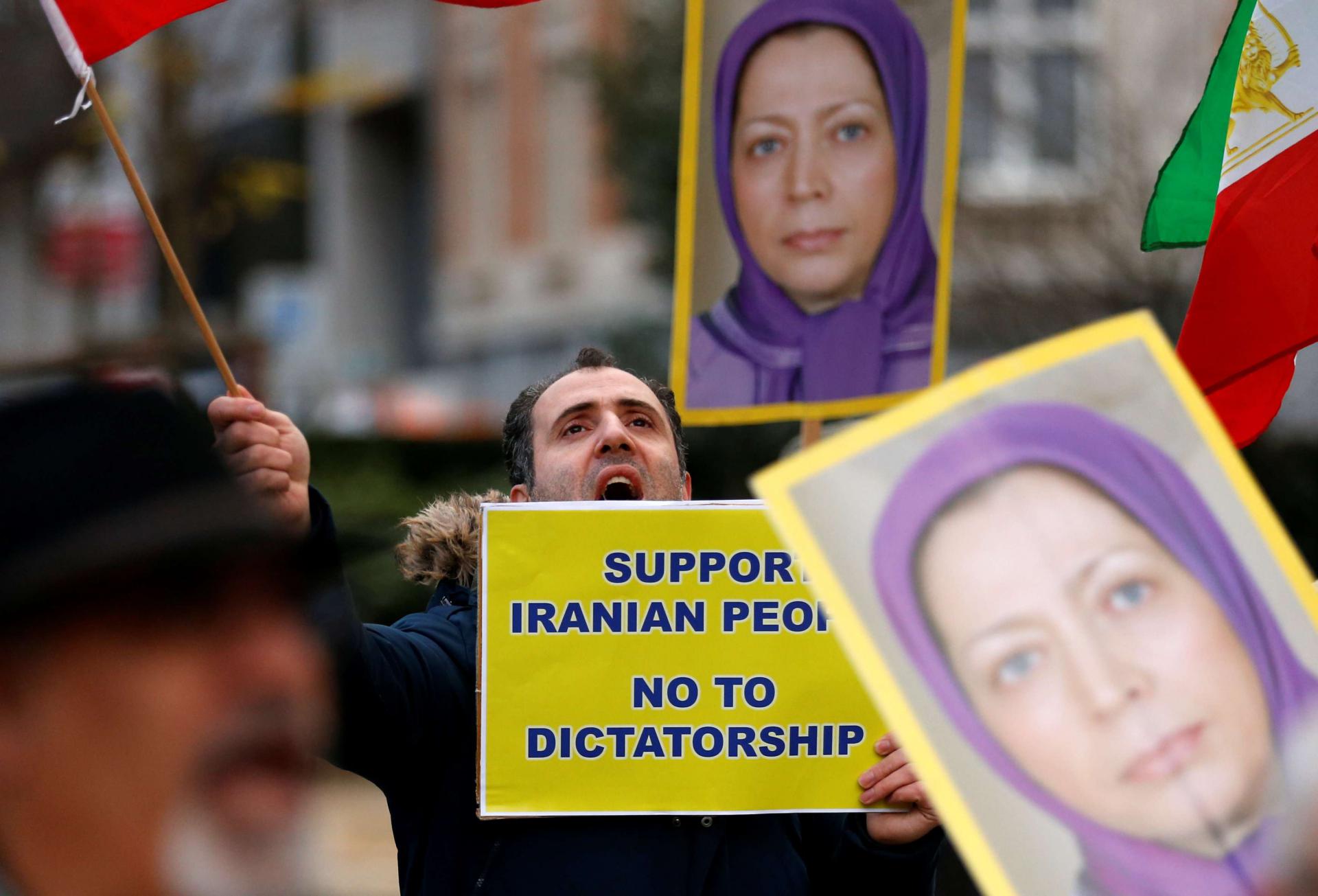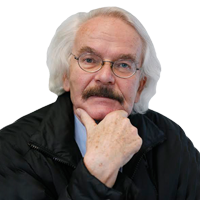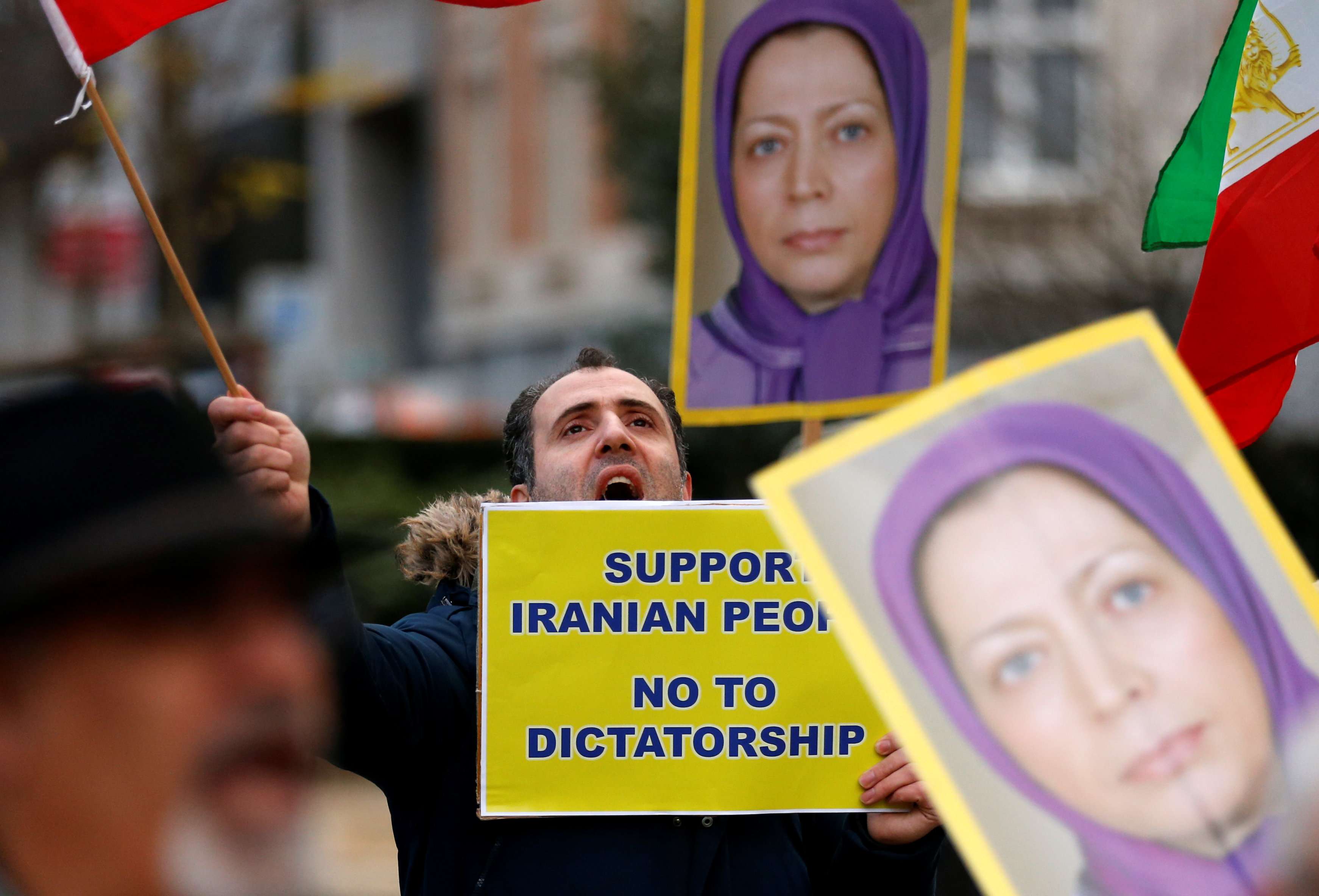Iran’s Mujahideen-e Khalq has friends at the White House
US President Donald Trump’s speech announcing the United States’ withdrawal from the nuclear agreement with Iran fell just short of calling for regime change in Tehran. However, that has long been the aim of Trump’s new national security adviser, John Bolton, and the Iranian exile group he champions.
The group is the Mujahideen-e Khalq (MEK). It has a controversial history and is backed by several prominent public figures in the United States. They see the MEK as a viable opposition to the Iranian theocracy but, despite years of trying to influence US policies at the highest level, the exiles never managed to find a friend at the White House. Now, they have.
How much the anti-mullah Iranian exiles are emboldened by Trump’s scathing criticism of the Iran deal and the ascent of Bolton to national security adviser is clear from something that happened May 5 in Washington.
The MEK called a gathering of more than 1,000 followers the “Convention for Regime Change by Iranians.” The keynote speakers at the event were Rudy Giuliani, a long-time Trump friend and recent addition to his team of lawyers; and Bill Richardson, a former US ambassador to the United Nations and governor of New Mexico.
Richardson warmed up the crowd with a question. “Are you ready for regime change in Iran?” he asked. “Yes, we are,” roared the crown in the ballroom of a five-star Washington hotel.
Giuliani, greeted like a rock-star, won cheers by describing as “my hero” Maryam Rajavi, the Paris-based head of the MEK’s political wing, the National Council of Resistance of Iran (NCRI). “We are all going to be in Iran pretty soon,” Giuliani said.
Giuliani and Richardson have been frequent speakers at MEK events. They have supported the group’s campaign to be taken off the US State Department’s list of terrorist organisations. The Clinton administration put the MEK on the list in 1997. It was a time it hoped to open a dialogue with Iran, whose leaders detest the MEK for having sided with Saddam Hussein in the Iraq-Iran war.
Among the people who lobbied for the MEK to be taken off the list were former CIA chiefs James Woolsey and Michael Hayden as well as former chairmen of the US Joint Chiefs of Staff Peter Pace and Hugh Shelton. Others who supported the MEK were former Attorney General Michael Mukasey, former Homeland Security Secretary Tom Ridge and former FBI Director Louis Freeh.
In 2012, Hillary Clinton, then secretary of state, took the group off the terrorist organisations list. It now has offices on Pennsylvania Avenue, a short walk from the White House.
The way MEK leaders and their American backers see it, the end is near for the Iranian theocracy and renewed US sanctions promised by Trump will hasten it. This view is largely based on Iran’s economic problems and mass protests across the country in December and January, initially against economic policies and later against the supreme leader, Ali Khamenei.
At the Washington convention, organisers displayed maps showing 141 towns and cities where they said protests had taken place. It was the largest public display of discontent since the 2009 Green Movement when hundreds of thousands took to the streets to protest elections they considered rigged to favour Mahmoud Ahmadinejad.
Whether mass protests could sweep away the Iranian leadership the way they ousted Hosni Mubarak in Egypt is very much open to doubt. Still, Trump, in his tear-up-the-deal speech assured disgruntled Iranians of his backing, saying: “I want to deliver a message to the long-suffering people of Iran: The people of America stand with you… The future of Iran belongs to its people.”
The leadership of the people, or so Bolton and other pro-MEK Iran hawks say, should belong to Rajavi, whose official title is president-elect of the National Council of Resistance of Iran. For years, her organisation has been showered with praise for efficiency by a string of Iran hawks but many Iran experts say the exiles enjoy little internal support.
The experts draw parallels with the Iraqi National Congress (INC), an exile group set up by Ahmed Chalabi. He had the ear of US President George W. Bush and received millions of dollars to hasten the downfall of Saddam Hussein and take over the Iraqi government. The INC had little influence in post-Saddam Iraq.
How much influence Bolton will have on US policy on Iran remains to be seen. However, Trump’s warning that Iran would have “bigger problems than it has had ever before” if it worked on a nuclear bomb echoed his security adviser’s language on previous occasions, if toned down for consumption on the world stage.
In 2015, as negotiations on the Iran deal drew into their final stage in Geneva, Bolton was even more blunt. In an opinion article in the New York Times, he wrote: “The inconvenient truth is that only military action… can accomplish what is required.”
Bernd Debusmann is a writer on foreign affairs based in Washington. He has reported from more than 100 countries and was wounded twice while covering the civil war in Lebanon.
Copyright ©2018 The Arab Weekly.







